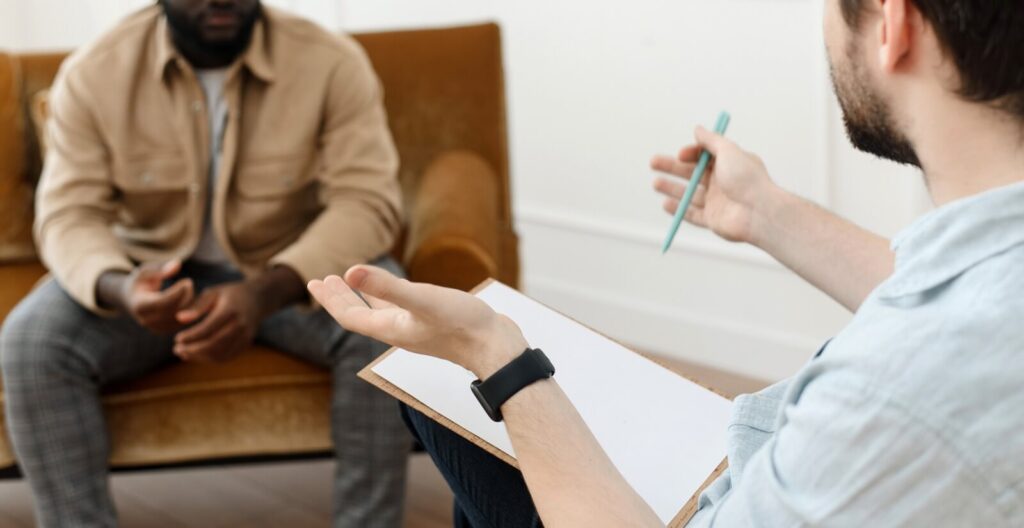 Recently, while I was riding with some friends, I asked, “What is the one thing you are the most afraid of when you are riding?” Instantly, one friend spoke up “To not end up dead!” Then added, “Just like you, right?” The other friend added, “Yeah, anything that could lead to that!” I chuckled and said, “Okay, can we be more specific? I know you are not instantly afraid of dying whenever you get on a horse, or that would make riding not any fun.” We continued the discussion by talking about trauma and what it’s like to feel good about riding one moment and then ultimately be fear-struck the next. But also how to not let your mind wander to those “scary” places. We did not solve this problem.
Recently, while I was riding with some friends, I asked, “What is the one thing you are the most afraid of when you are riding?” Instantly, one friend spoke up “To not end up dead!” Then added, “Just like you, right?” The other friend added, “Yeah, anything that could lead to that!” I chuckled and said, “Okay, can we be more specific? I know you are not instantly afraid of dying whenever you get on a horse, or that would make riding not any fun.” We continued the discussion by talking about trauma and what it’s like to feel good about riding one moment and then ultimately be fear-struck the next. But also how to not let your mind wander to those “scary” places. We did not solve this problem.
However, it Did Start Me to Think About the Number of Traumas Riders Endure On Many Levels and How This Impacts Not Only Riding But Daily Life.
So, how do we “not end up dead” when riding or living our lives? How do we manage that fear so that we can enjoy our lives? The answers to the questions are complex. They will take practice and a level of commitment. In this blog, we will talk specifically about riders and their trauma but these techniques can apply to almost anything we do where anxiety and fear suddenly appear.
Self-Awareness
The first step is to recognize and be aware of what is happening in our bodies. As riders, we quickly see changes in our horse’s behavior. Or even in their body such as a head toss, a foot stomp, or when they snort at something. When this happens, we react to these things by applying meaning and judgment to them.
He stomped his foot, so he is mad. He snorted, so he must be afraid. Then we do something to help them recover. We pat them, we talk to them, and we let them walk around. Generally, the horse will then change his behavior. However, do we do this for ourselves? Maybe and maybe not.
But More Than Likely Not as Often as We May Need To.
Are we aware of our heart rate and breathing before, during, or even after we ride? Sure, we will if we have someone to tell us or reminds us to do it. Just like how we have instructors who will say to breathe and relax, and we likely do it. We want to be able to create a habit or a trigger for you to be able to do this even when you are by yourself. Noticing how we are feeling internally is crucial to be able to do something about it. It is tough to change something if we cannot identify the feelings and body sensations associated.
Let Go of the Judgment
Secondly, is to not be judgmental about what is going on. This can also be tricky as we often want to label our feelings, thoughts, and sensations as “good” or “bad”. However, allow yourself to feel something. I do this when riding. I notice that my fingers tingle when I get on my horse. Or that my feet get cold when I walk to the barn (even when it is boiling outside). Suppose we can be aware of our sensations without judging them but be curious about why they are coming up. And what they are saying to us.
If your feet are cold, you could recognize the need for more socks. If it is hot outside, then maybe you ice them. Or what if it means something else? Your brain may go “my feet are cold, this means I am a terrible rider. Or my horse will act up.” The judgment may seep in and have you saying to yourself “I bet Jane Doe never has cold feet. Just look at how calm she is! Look at how well she’s doing…”
All Thoughts Happen in About a Millisecond.
Even the judgmental ones. Before even thinking of why, we have judged our poor feet for being cold without being curious as to why. Thoughts or questions that would be more helpful would be to ask or think “Why are my feet so cold?” “I don’t usually feel this way in this situation.” then respond to it, just like we would with our horse.
Be Curious
 So what do we do third? Be curious. Ask these questions with curiosity such as “Why are my feet cold?” “ Why am I suddenly feeling this way?” “What could I try to tell myself about what is happening around me?” This may seem silly but we all know that we have in-depth, lengthy conversations with our horses. So why not have an internal discussion with ourselves?
So what do we do third? Be curious. Ask these questions with curiosity such as “Why are my feet cold?” “ Why am I suddenly feeling this way?” “What could I try to tell myself about what is happening around me?” This may seem silly but we all know that we have in-depth, lengthy conversations with our horses. So why not have an internal discussion with ourselves?
As we start to have that conversation with ourselves, we can ask that feeling to calm down, step back or reassure it. We can tell that what it is saying is being heard and will not be pushed aside. So instead of listening to the judgment and saying “I am not a good rider”, “I am a terrible person”, “I cannot do it”, or any of the many things we tell ourselves, we can start to say “Okay, my body is really trying to say something to me. What is going on around me and inside of me?”
Make Room For The Feeling
When you do have an in-depth and lengthy conversation with yourself, allow it to continue for a moment. Make room for the feeling. This really just allows us to be uncomfortable for a minute. It’s not to change the feeling or really react to the feeling. Think of it as when you tie your shoelaces a bit too tight. Your foot will hurt, so your response is to loosen the strings just a bit, and the pain usually goes away very quickly. What did you do? You just made more room for your foot. You didn’t change the shoe or your foot. You really just made room.
As you get more practice in doing this, you can ask about the uncomfortable feeling of having a seat outside the arena or where you are riding to be comfortable and to not bother you. This may sound unrealistic yet again, but we all know we have a lengthy conversation with horses, dogs, and even the truck when it won’t start. So asking these sensations, feelings, and thoughts to not be so in your face at the moment is not a complete stretch. We are asking the sense to get comfortable somewhere else. While also reassuring this sensation that although you appreciate its desire to help, it will be more helpful next to you instead of in front of you.
These Steps Will Take Practice
I do know these steps sound a bit unrealistic; however, if you can practice them on something small, even something easy, you will see how helpful they can be. Now, these steps do take time to work. After the first several times you attempt this, you may not feel much different, but if you continue to do this, it will become like second nature. Just like everyone’s first reaction is panic, this can become your go-to reaction.
You might be thinking to yourself “This might work for something minor, however, it will never work for something as big and scary as not ending up dead.” It may or may not be enough to change or remove that emotion/thought completely. But, practicing regularly will help. Using these techniques will get you on the road to understanding possible underlying problems triggering these feelings.
For example, if you have suffered a serious fall or accident with your horse, it may be easy to say I am nervous because of the fall. This may be true; however, what if the reason for the fall was another cognitive distortion that had been noticed previously? That does not mean change is not possible. It means that there are many factors that attribute to our beliefs and thoughts about ourselves and the world around us. Learning more about the things we tell ourselves is one way to change how we think about ourselves.
However, Sometimes We Need Trauma Support.
 As a trauma therapist, I can tell you there are a lot of different ways to manage to help with traumatic events. These events can be big, like having a serious fall or a serious accident that would be considered a Big T event. They can also be from lots of little things that continue to pile up. Or it can even be from something someone said at the barn or during a lesson. These would be considered a Little t event. Both types of events are hurtful and can be difficult to manage without support.
As a trauma therapist, I can tell you there are a lot of different ways to manage to help with traumatic events. These events can be big, like having a serious fall or a serious accident that would be considered a Big T event. They can also be from lots of little things that continue to pile up. Or it can even be from something someone said at the barn or during a lesson. These would be considered a Little t event. Both types of events are hurtful and can be difficult to manage without support.
Learn What Your Body is Telling You in Trauma Therapy in Richmond, VA
These exercises are just one of many and the beginning steps to managing our thoughts and emotions concerning trauma. Using other techniques, such as EMDR or EMDR intensives, can be very helpful in dealing with trauma and its lasting effects. If you are interested in learning about EMDR or equine-assisted therapy and other modalities to manage anxiety, depression, and trauma, please contact me to schedule a consultation. You can start your therapy journey with Gray Horse Counseling by following these steps:
- Contact me and schedule a free consultation.
- Check out my FAQs and read more about me
- Start listening to your body today!
Other Therapy Services Offered by Gray Horse Counseling
Trauma therapy is one of the various therapy services we offer at our counseling practice located in Powhatan, VA. We offer in-person appointments in Powhatan and online in Virginia. Our other services at Gray Horse Counseling include individual therapy, anxiety therapy, group therapy, equine sports, clinical supervision, life transitions therapy, and depression therapy. Check out my FAQs, read about me, and contact me today to get the help you deserve!

